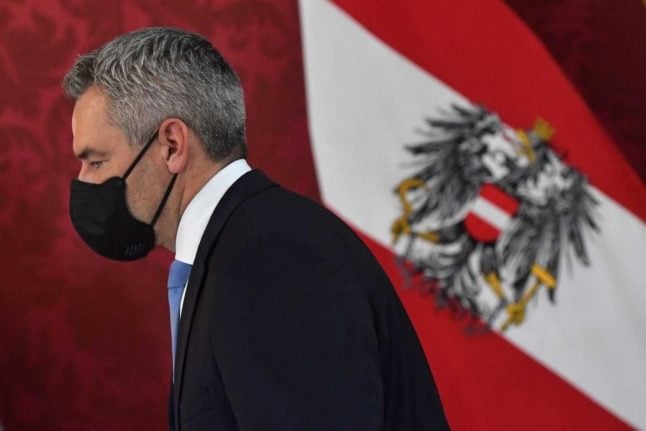“Federal Chancellor Karl Nehammer left this evening for his visit to Ukraine,” the chancellory said in a statement.
Nehammer indicated earlier in the week he would visit Ukraine.
READ MORE: Austria’s Nehammer to visit Zelensky in Ukraine
Nehammer’s visit comes as European Commission President Ursula von der Leyen visited Bucha on Friday on a trip to Ukraine along with the bloc’s diplomatic chief Josep Borrell.
Nehammer is expected to travel to Bucha, near Kyiv, on Saturday, according to a statement from his office.
Ukraine’s President Volodymyr Zelensky has accused Russian troops of being behind the killings in the town, but the Kremlin has denied any responsibility and suggested images of corpses were “fakes”.
“Federal Chancellor Karl Nehammer left this evening for his visit to Ukraine with a delegation and media representatives,” the chancellory said.
Besides visiting Bucha, Nehammer is planning to meet Zelensky followed by a press conference and a meeting with Prime Minister Denys Shmygal on Saturday.
He is also planning to meet Kyiv Mayor Vitali Klitschko before returning later Saturday.
“It is important that, within the framework of our neutrality, we support Ukraine on both a humanitarian and a political level,” Nehammer said in a statement.
“What is happening in Ukraine, and in particular in many cities of Ukraine, is a terrible war of aggression against the civilian population,” he said.
He said that independent and international experts should get to the bottom of “the war crimes that have come to light”.
“Those responsible for these crimes must and will be held accountable,” he said. Violence in the town of Bucha, where authorities say hundreds were killed — including some found with their hands bound — has become a byword for allegations of brutality inflicted under Russian occupation.
The Czech, Polish and Slovenian prime ministers visited Kyiv on March 15, before Russian troops withdrew from around the capital, in the first trip by European Union leaders since the start of the Russian invasion on February 24.



 Please whitelist us to continue reading.
Please whitelist us to continue reading.
Member comments